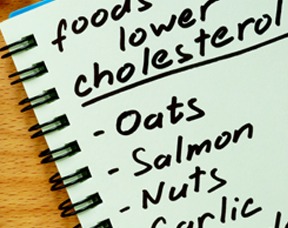NEW YORK, NEW YORK (PRWEB) MAY 17, 2017
At the annual meeting of the American Urological Association, held this year in Boston, a study led by Juzar Jamnagerwalla, MD, a chief resident at Cedars-Sinai Medical Center in Los Angeles, found that for each 10 mg/dl increase in total cholesterol, there is an association of a significant 23% greater risk of high-grade prostate cancer.
“I had the opportunity to attend this year’s annual meeting of AUA in Boston which brings together urologists and other specialists in the field of urology,” said Dr. David Samadi. “This interesting study is pointing to the fact there appears to be a connection of cholesterol’s effect to prostate cancer risk. In the past, epidemiological studies showing any link between cholesterol and prostate cancer have been mixed at best. But there have been other past studies that do show an association between cholesterol and prostate specific antigen or PSA in men – if men have a high cholesterol number they tend to have a high PSA number. So these findings would make sense.”
Given the fact of the prevalence and relationship between prostate cancer and hypercholesterolemia and the mixed results from past studies showing a link between the two conditions, the study authors wanted to try something different. They wanted to see if there was an association between serum lipids and prostate cancer in the Reduction by Dutasteride of Prostate Cancer Events (REDUCE) study to support their hypothesis that high cholesterol is linked with aggressive prostate cancer.
For the research, 4,904 men who were not taking statins participated in the 4-year REDUCE study. Each participant was required to undergo study-mandated biopsies.
“What this research found was that men with both an elevated cholesterol and elevated HDL had an association with an increased risk of high-grade prostate cancer supporting the researcher’s hypothesis,” stated Dr. Samadi. “Specifically, at the 2-year biopsy, for each 10 mg/dl increase in total cholesterol, there was a significant association with 23% greater odds of high-grade prostate cancer of a Gleason score of 7 or higher.”
Dr. Samadi continued with his interpretation of the data results, “Also shown was that for each 10 mg/dl increase in high-density lipoprotein (HDL) levels there was a significant and respective association with 34% and 74% greater odds of overall and high-grade prostate cancer. However, there was no association found between low-density lipoprotein (LDL) levels and prostate cancer risk. It was also found that a man’s total cholesterol levels were not associated with overall and low-grade prostate cancer risk.”
“I believe the takeaway message from this research is that urologists need to always look at a man’s cholesterol levels in regards to his risk for aggressive prostate cancer,” explained Dr. Samadi. “Until there are further studies conducted to definitively help us understand the connection between cholesterol and high-grade prostate cancer, we should help educate men on ways to lower their total cholesterol that just might help prevent aggressive prostate cancer to begin with.”
Patients newly diagnosed with prostate cancer can contact world renowned prostate cancer surgeon and urologic oncologist Dr. David Samadi, for a free phone consultation and to learn more about prostate cancer risk, call 212-365-5000.


